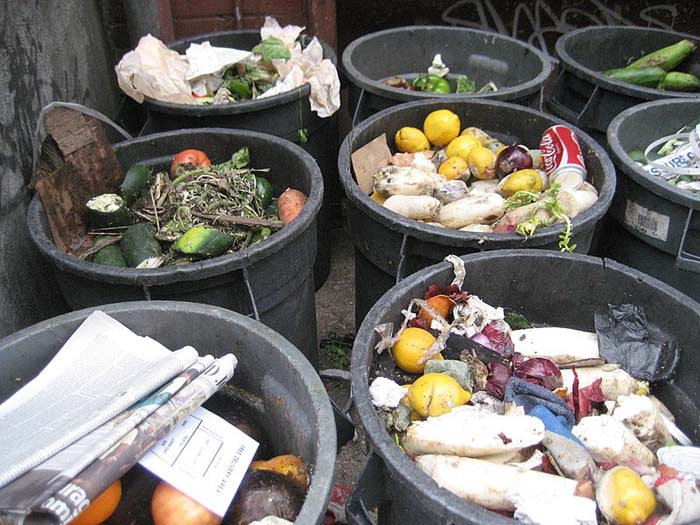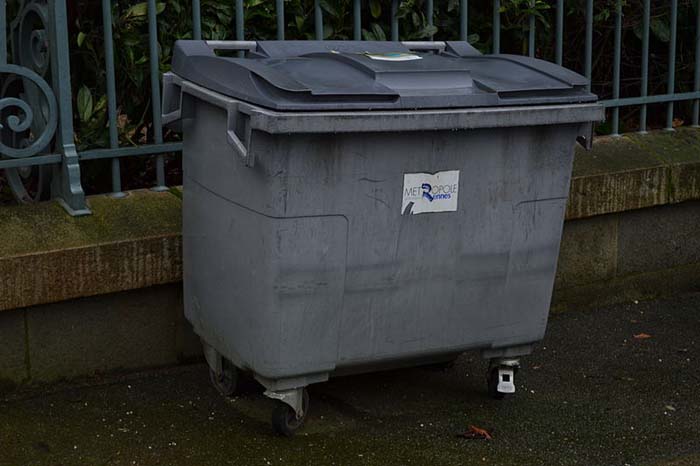
Numerous household activities produce a variety of byproducts and materials every day, making domestic waste an important part of life. Waste at home can include a wide range of things, from packaging materials to leftover food to expired medicines to broken equipment. Resource conservation, public health, and environmental sustainability are all dependent on responsible waste management.
There are three main types of household waste: non-recyclable, recyclable, and organic. Biodegradable materials, such as yard trimmings and food scraps, are considered organic waste. Metals, plastics, cardboard, glass, and paper are all parts of recyclable waste that can be utilized to make new goods. Non-recyclable materials include toxic chemicals, electronic waste, and certain plastics. They represent a threat to the environment if discarded improperly.
Here are ways to reduce and manage waste at home.
To promote sustainability and minimize environmental effects, it is important to reduce and manage trash at home. In order to accomplish this, consider the following strategies:
- Ditch the paper towels in favor of reusable ones
Get some small reusable cloth pads or towels and use them instead of paper towels for all your kitchen spills. Not only are they machine washable, but they are also just as absorbent. You can also use cloth napkins.
- Bring your own reusable bags to the store
The trend of people bringing their own reusable bags to the supermarket is probably not news to anyone who has shopped there recently. You are unquestionably contributing to your garbage problem if you consistently bring home paper bags from your grocery store. Instead of letting that trash get full of unnecessary plastic bags, you can use cloth or nylon bags.
- Minimize water usage.
Following these easy steps will help you cut back:
- When you landscape, look for native plants that require little water and use eco-friendly sprinkler systems.
- Look into getting more water-efficient appliances, such as a new washing machine and dishwasher.
- To reduce water consumption, wash dishes by hand, take shorter showers, and turn off the water when it’s not in use.
- Go paperless
In today’s digital age, paperless processes are more accessible than ever. Use the resources available to you online to get digital files from all your service providers—including your internet provider, cellular provider, bank, and more. This easy adjustment decreases paper waste and can help achieve a more sustainable lifestyle.

- Buy in bulk.
Because it requires less single-use packaging, shopping in bulk can be an effective strategy to decrease the amount of waste your home produces. When you visit bulk stores to replenish commodities like cleaning products, nuts, and grains, think about carrying your reusable containers.
- Participate in the second-hand economy
Joining the second-hand market is an eco-friendly and economical option for shopping for and selling one-of-a-kind goods. Before you go shopping for new stuff, evaluate if there’s a way you could resell or reuse the things you already have, such as by selling them at local thrift stores or on internet marketplaces.
- Support eco-friendly clothing
To make a significant impact on the lives of those working in the fashion supply chain and the environment, embrace sustainable fashion.
- Instead of buying cheap, throwaway clothes every season, invest in upcycled, recycled, or organic clothes that will last a long time.
- Look for clothing labels that care about doing the right thing for the environment and their customers. Look for businesses that have credible, environmentally friendly certifications.
- Reuse or donate unused furniture.
When the time comes to dispose of your old furniture, consider alternatives to dumping it. You can advertise it online to donate, sell, or give it to a local charity. For your convenience, some donation centers will even come and collect your old furniture.
9: Plan and compost to cut down on food waste
The amount of food scrap that ends up in the trash is substantial. To reduce the quantity of food wasted:
- Compost anything that is no longer fit for human food to create nutrient-rich soil for your garden.
- Make a meal plan based on when the food in your refrigerator is going to expire.
- Responsible for disposing of electronics
A lot of work goes into disposing of old electronics, such as old TVs, computers, and the like. Before you throw out any electronics, make sure there is a drop-off option with the manufacturer. Proper disposal is crucial for the safe handling of hazardous materials and the recycling of valuable components.
- Inspire and educate people
Raise awareness about the need to reduce waste by sharing what you’ve learned with those around you. Get involved with local sustainability efforts, host workshops, and inspire people to live green. This is just a friendly reminder that, by doing so, you can start a chain reaction that drastically reduces our waste.
- Don’t depend on a lot of single-use items.
- The interior coating of disposable paper travel mugs makes them non-recyclable, so bring an insulated mug instead.
- Invest in some eco-friendly products like washable snack bags, reusable lunch containers, and reusable water bottles.
- Use reusable alternatives to single-use products, such as paper towels, tin foil, and plastic wrap. For example, instead of parchment paper, use silicone baking sheets, and instead of paper towels, use tinfoil and washable microfiber cloths.
Benefits of reducing and managing waste at home
Domestic trash reduction and management have numerous advantages for both the environment and people:
- Educational Opportunities
Helping out around the house with waste reduction can be a great way to teach kids about environmental issues. It encourages them to take an active role in protecting our home.
- Conserving Energy
Reducing waste can improve energy conservation in transportation, incineration, and landfill management.
- Advocating for Eco-Friendly Methods
Encourage sustainable behavior by reducing and managing trash at home. This ripple effect has the potential to affect change in communities and even society at large.
- Cost Savings
By reducing waste, you can save money on goods and services, which in turn reduces your consumption.
- Decreased Pollution
Waste, particularly plastic waste, threatens wildlife and the ecosystem. Efficient waste management can help minimize pollution and safeguard ecosystems.
- Conserving the Environment
Minimizing the quantity of waste sent to incinerators or landfills can help conserve natural resources and reduce contamination. It all starts with reducing and managing waste.
- Climate Change Mitigation
Implementing improved waste management strategies, such as recycling more and less food scraps and composting more organic materials, can reduce greenhouse gas emissions.
- Health Benefits:
Protecting people’s health and safety from potentially harmful substances and pollutants is the goal of effective waste management.
- Support the Circular Economy
You may help achieve the goal of a circular economy, which seeks to maximize the value of resources while minimizing their waste by recycling and reducing waste.
- Conservation of Landfill Space
There is a limited supply of landfills. Reducing waste helps current landfills last longer and saves money. Additionally, it prevents damage to the environment from being caused by having to dig new ones.
Conclusion
Proper disposal of non-recyclable and hazardous waste is crucial for protecting human health and preventing environmental contamination. Recycling centers or specific locations may be necessary for the safe disposal of household chemicals, electronics, and gadgets.
Proper domestic waste management is everyone’s job, and it requires everyone’s help. Reducing waste, conserving resources, and making a positive impact on the environment for future generations are achievable through the adoption of sustainable practices and conscious consumer habits.
